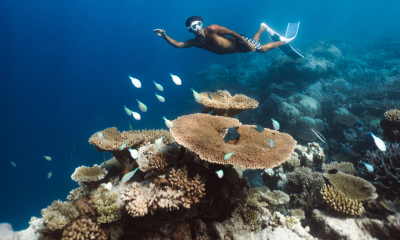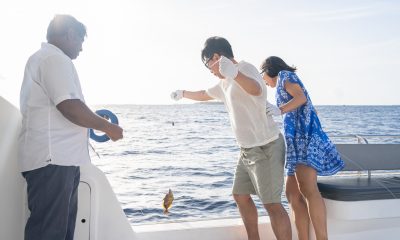Featured
Maldives protects parrotfish

Parrotfish have been added to the “prohibited species” list in the Maldives, making it illegal to catch the colourful, charismatic fish.
The last time a coral reef fish, the napoleon wrasse, was protected in the Maldives was in 1995.
Under the new Maldives General Fisheries Regulation, it is now illegal to catch, kill or keep all species of parrotfish. As of March 1, 2021, it will no longer be allowed to trade, or display parrotfish or items made from any of its parts in shops and public places.
The new protection comes two months after the #FishForTomorrow campaign, run by the Maldives Resilient Reefs Project of Blue Marine Foundation.
The social media campaign, highlighting the importance of parrotfish to the health of Maldivian coral reefs, was backed by a number of local organisations, celebrities, fisheries scientists and members of the fishing community.
“Abundant and diverse populations of parrotfish are critical to allow our reefs to recover from threats that compromise their health such as coral bleaching,” Shaha Hashim, Maldives Project Manager at Blue Marine Foundation, said.
“Our reefs have weakened over time and these threats are predicted to increase in frequency and intensity over time. Ensuring our reefs are healthy will allow us to protect ourselves and our islands from rising sea levels.”
Parrotfish are colourful and voracious herbivores that spend up to 90 per cent of their day eating algae off coral reefs with their beak-like teeth. This grazing action creates space for coral larvae to settle and promotes coral growth while also preventing coral reefs from becoming overgrown with algae.
They are also responsible for producing up to 80 per cent of the sand on outer reefs that replenishes Maldivian beaches and lagoons.
“Research has shown that reefs with low numbers of parrotfish recover much slower than reefs with abundant parrotfish,” Professor Callum Roberts, a Professor of Marine Science at Exeter University in the UK who has studied coral reefs for more than 25 years, said.
“I commend the Maldives government for this progressive step to protect their coral reefs and boost their ability to bounce back from damage.”
Traditionally, parrotfish were rarely targeted for consumption in the Maldives. However, over the past decade they have started to appear in large numbers in fish markets and shops in Male.
“I have been a reef fisherman for the past 20 years and I have seen an increase in the number of fishers targeting parrotfish. A lot of young people are now catching parrotfish in large numbers on recreational fishing trips,” Yoosuf Abdul Rahman, a local fisher from the island of Dhiffushi in Kaafu atoll, said:
Fishermen have reported declines in the catch of parrotfish, prompting them to support protective measures.
“I have been fishing for a long time and have seen the decrease in the number of parrotfish being caught. I haven’t been able to catch a single parrotfish in three weeks. There is a definite need for protection as a decline has been observed throughout North Male Atoll,” Zuhair, a reef fisherman from the island of Huraa in Kaafu atoll, said.
There are encouraging reports from workers at Male fish market which suggest that some fishers have stopped fishing parrotfish since the ban.
“During Covif-19, I think the number of recreational fishers targeting parrotfish doubled in Male atoll. However, over the past two weeks since the ban, there has been a decrease in the number of parrotfish being brought here,” Ali Hassan, a fisherman who sells his catch to the Male fish market, said.
Blue Marine Foundation hopes that the review of fisheries management plans by the Maldivian government could result in further conservation “wins” in the near future.
Drink
The Nautilus Maldives hosts Gregor Zimmermann for three-day Easter gastronomic programme

At The Nautilus Maldives, time is guided by personal rhythm and creativity is free from constraint. From 3 to 5 April 2026, the ultra-luxury private island resort will welcome Gregor Zimmermann, Switzerland’s State Chef and Executive Chef of the Bellevue Palace in Bern, for an intimate Easter culinary residency that brings Alpine heritage to the shores of the Indian Ocean.
During the three-day residency, guests will be invited to take part in a series of unhurried and immersive dining experiences. Two exclusive gourmet evenings at Zeytoun will feature tasting menus that create a refined dialogue between the flavours of the Swiss Alps and Maldivian produce. The programme also includes a Chocolate Masterclass, offering an interactive introduction to Switzerland’s celebrated chocolate-making traditions, where Zimmermann will share techniques, cultural heritage and the artistry behind the craft, allowing guests to create and enjoy their own confections.
The residency will extend into the island’s Easter celebrations, with Zimmermann’s creations appearing as special canapés during Nautilus Rising at the Naiboli Beach pop-up. These moments will serve as a prelude to the festive programme, blending culinary artistry with the relaxed rhythm of island life.
A member of the prestigious Le Club des Chefs des Chefs, the international association of chefs serving heads of state, Zimmermann is the trusted culinary custodian for visiting presidents, royalty and official delegations in Switzerland. His career includes cooking for figures such as President Emmanuel Macron and members of European royal families. In recognition of his contribution to gastronomy and his commitment to excellence, he was awarded the Officier du Mérite Agricole by the French President.
Zimmermann’s cuisine is defined by clarity, restraint and emotion. Rather than adhering to a fixed signature style, his cooking reflects stories of origin, landscape and memory, weaving Swiss Alpine traditions with global influences in a technically precise yet expressive approach. He has described his work as a continuous reinterpretation of rustic Swiss recipes, while remaining faithful to their roots.
Adan Gomez, General Manager of The Nautilus Maldives, said that Zimmermann’s residency reflects the resort’s commitment to artistic freedom and authenticity. He noted that the Masters for Masters series invites respected global talents to create without boundaries in an environment shaped by individuality and unhurried living.
Set within the Baa Atoll UNESCO Biosphere Reserve, the Easter residency at The Nautilus will bring together Swiss craftsmanship and Maldivian serenity in a celebration of purity, artistry and cultural exchange. The programme is designed to offer guests moments shaped by mastery, experienced entirely on their own terms.
Featured
St. Regis Maldives Vommuli Resort curates timeless Valentine’s experiences with IVAR Jewellery
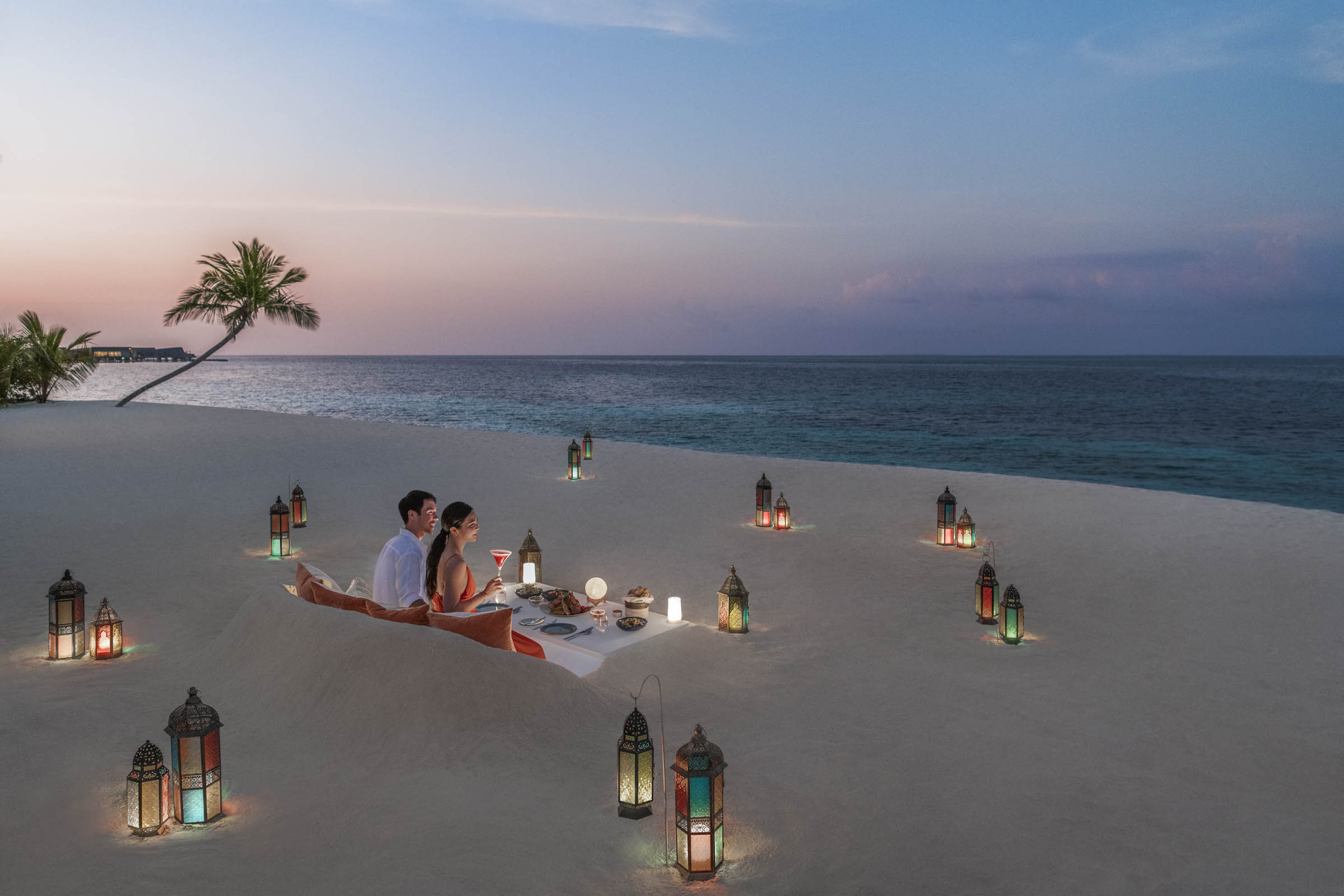
The St. Regis Maldives Vommuli Resort has unveiled an intimate celebration of love through an exclusive collaboration with IVAR Jewellery, bringing together craftsmanship, emotion, and timeless romance in a refined island setting. Rooted in shared values of artistry and enduring beauty, the partnership invites guests to experience love as something continuous, evolving, and deeply personal.
Central to the collaboration is IVAR’s Infinity Collection, inspired by the circle as a symbol with no beginning and no end. Each piece reflects a quiet and enduring expression of love, designed to preserve fleeting moments in lasting form. The collection speaks to intimacy, connection, and the promise of forever, offering jewellery that is both meaningful and timeless.
IVAR’s creations draw on the rich traditions of Indian craftsmanship, reinterpreted through a contemporary design approach. Crafted by skilled artisans using time-honoured techniques, each piece balances heritage with modern elegance. Designed for daily wear and long-term appreciation, the jewellery is intended to accompany life’s most significant milestones and be treasured across generations.
Inspired by this philosophy, The St. Regis Maldives Vommuli Resort has curated a series of romantic experiences that reflect the elegance and symbolism of the Infinity Collection. At Iridium Spa, couples are invited to enjoy a Romantic Spa Escape, an immersive sensory journey infused with rose geranium and rose quartz. Each treatment is designed to restore balance, deepen connection, and create moments of calm intimacy that extend beyond the spa.
As evening approaches, romance continues with Valentine’s dining experiences set beneath open skies and framed by the island’s natural beauty. Soft lighting, refined menus, and an unhurried atmosphere encourage couples to linger, connect, and celebrate togetherness. Every detail is composed to honour shared moments and the quiet luxury of presence.
For couples preparing to begin their next chapter, IVAR’s Solitaire Collection offers a classic expression of commitment. Defined by diamonds of exceptional brilliance and clarity, each piece reflects the purity of the promise it represents. Set within the surroundings of The St. Regis Maldives, weddings become personal celebrations where elegance, emotion, and artistry come together.
Through this collaboration, The St. Regis Maldives Vommuli Resort and IVAR Jewellery invite guests to experience a love that is both effortless and profound, fleeting yet enduring, creating memories inspired by the infinite symbol that lies at the heart of the partnership.
Featured
Cinnamon Hotels & Resorts Maldives launches March flash offer with savings of up to 80%

Cinnamon Hotels & Resorts Maldives has announced a limited-time flash offer inviting travellers to experience the Maldives in March, one of the destination’s most favourable months, with savings of up to 80 per cent when booking direct. The promotion is available across all four Cinnamon resorts in the Maldives and combines discounted rates with added island experiences, allowing guests to enjoy the destination during a period of ideal weather conditions.
The offer is open for bookings from 23 January to 2 February 2026, for stays between 1 March and 31 March 2026, using the promotional code MARCH26.
Guests booking under the offer can look forward to a range of experiences, including diving and snorkelling excursions with opportunities to encounter manta rays, reef sharks and sea turtles. On land, activities include island hopping, sunset fishing trips, Balinese spa treatments and four-course beachfront dinners. Guests staying a minimum of three nights are also eligible to receive resort credits of up to USD 150, providing additional value during their stay.
At Cinnamon Dhonveli Maldives, guests booking direct may select any two island experiences, or enjoy up to all available benefits once per stay depending on their GHA DISCOVERY membership tier, along with USD 100 in resort credits for stays of three nights or more. Available experiences include a beach dinner, a Balinese massage, a swim and snorkel excursion, and a local island visit.
At Cinnamon Velifushi Maldives, guests may select any two island experiences, or enjoy up to all benefits once per stay depending on their GHA DISCOVERY membership tier, together with USD 150 in resort credits for qualifying stays. Available options include a beach dinner, a spa treatment, island hopping and dolphin watching.
At Cinnamon Hakuraa Huraa Maldives, guests may select any two island experiences, or enjoy up to all benefits once per stay depending on their GHA DISCOVERY membership tier, along with USD 100 in resort credits for stays of three nights or more. Experiences include sunset fishing, island hopping, a bottle of sparkling wine and a kayaking experience.
At Ellaidhoo Maldives by Cinnamon, guests booking direct may select any two island experiences, or enjoy up to all benefits once per stay depending on their GHA DISCOVERY membership tier, together with USD 100 in resort credits for qualifying stays. Available experiences include a beach dinner, a Balinese massage, sunset fishing and a dolphin safari.
Under the GHA DISCOVERY membership programme, Silver tier members may select two benefits, Gold tier members may select three benefits, and Platinum tier members are entitled to all listed benefits once per stay.
In addition, GHA DISCOVERY members who book direct are eligible for further privileges, including the ability to earn and redeem DISCOVERY Dollars, potential room upgrades up to suite category, and early check-in and late check-out, subject to availability and membership tier.
Available for a limited time, the flash offer is designed to encourage travellers to visit the Maldives in March, when weather conditions are favourable and island experiences are at their most appealing.
-
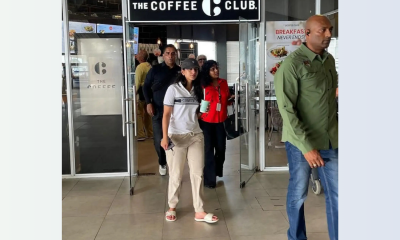
 News7 days ago
News7 days agoAmbani family members holiday in Maldives again
-
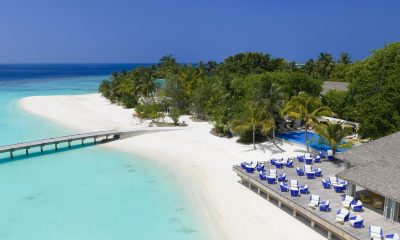
 Featured1 week ago
Featured1 week agoPulse Hotels & Resorts unveils eco-chic Eri Maldives in North Malé Atoll
-
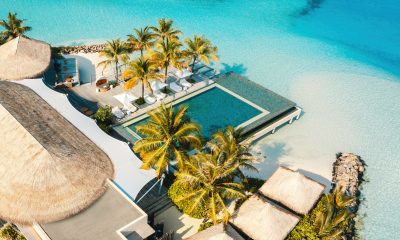
 News1 week ago
News1 week agoInterContinental Maldives unveils luxury experiences designed for solo traveller
-
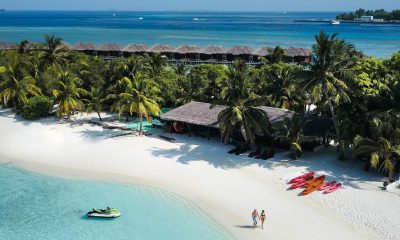
 Featured1 week ago
Featured1 week agoEndless Summer awaits at Sheraton Maldives Full Moon Resort & Spa
-

 Love1 week ago
Love1 week agoFive days of Valentine’s experiences at Cinnamon Hakuraa Huraa Maldives
-
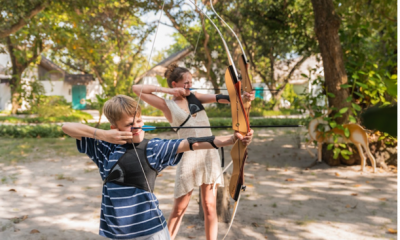
 Featured1 week ago
Featured1 week agoFrom Lunar New Year to Easter: Sirru Fen Fushi reveals seasonal line-up
-
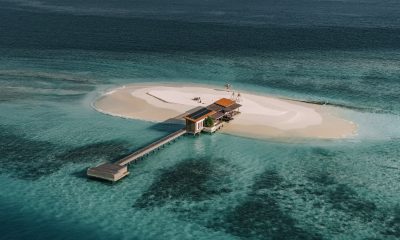
 Cooking6 days ago
Cooking6 days agoAlila Kothaifaru Maldives hosts Campania Wine Dinner with Mastroberardino
-
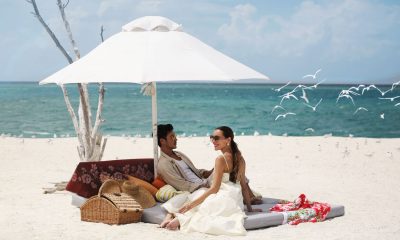
 Featured1 week ago
Featured1 week agoThe Standard, Maldives unveils romantic Valentine’s Day experiences



